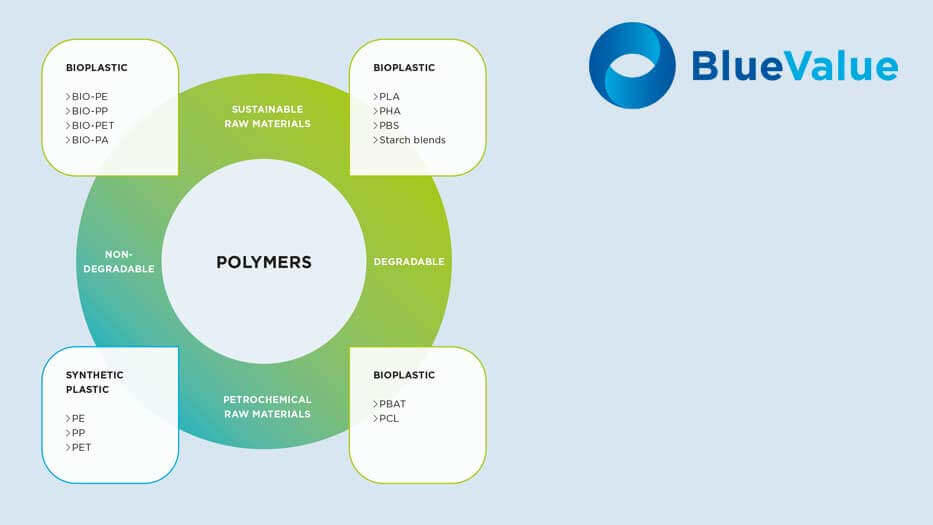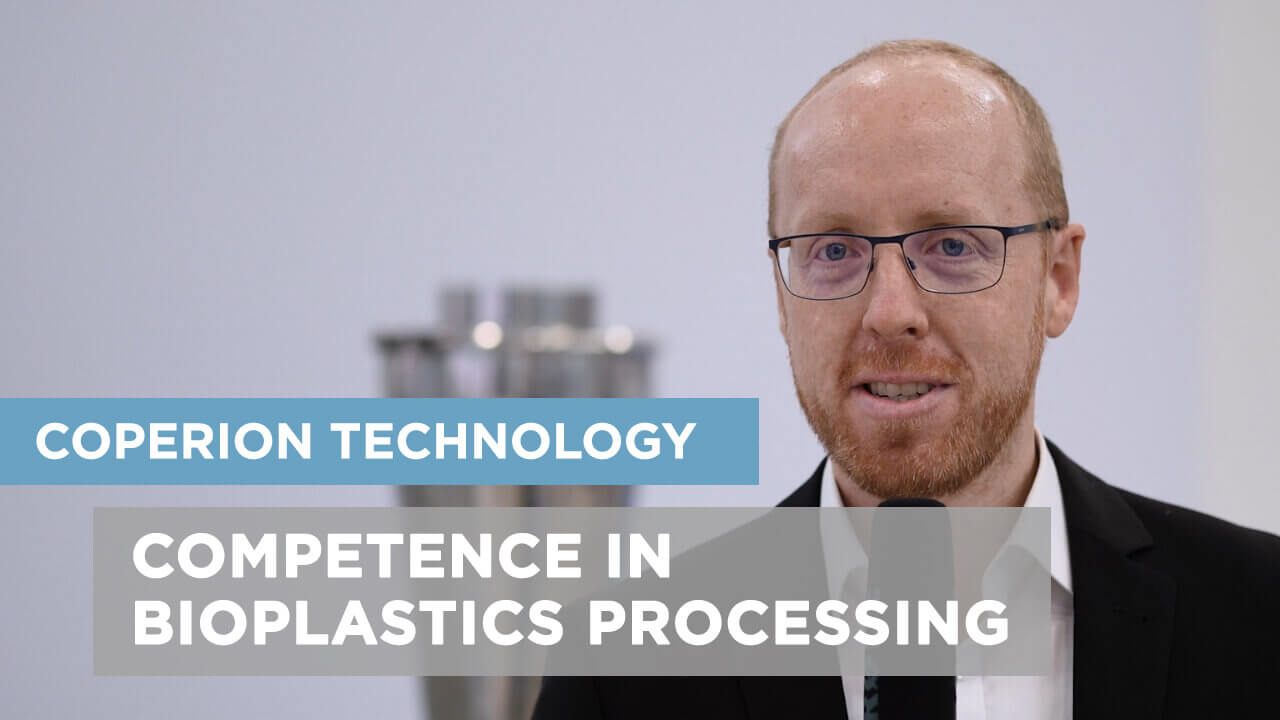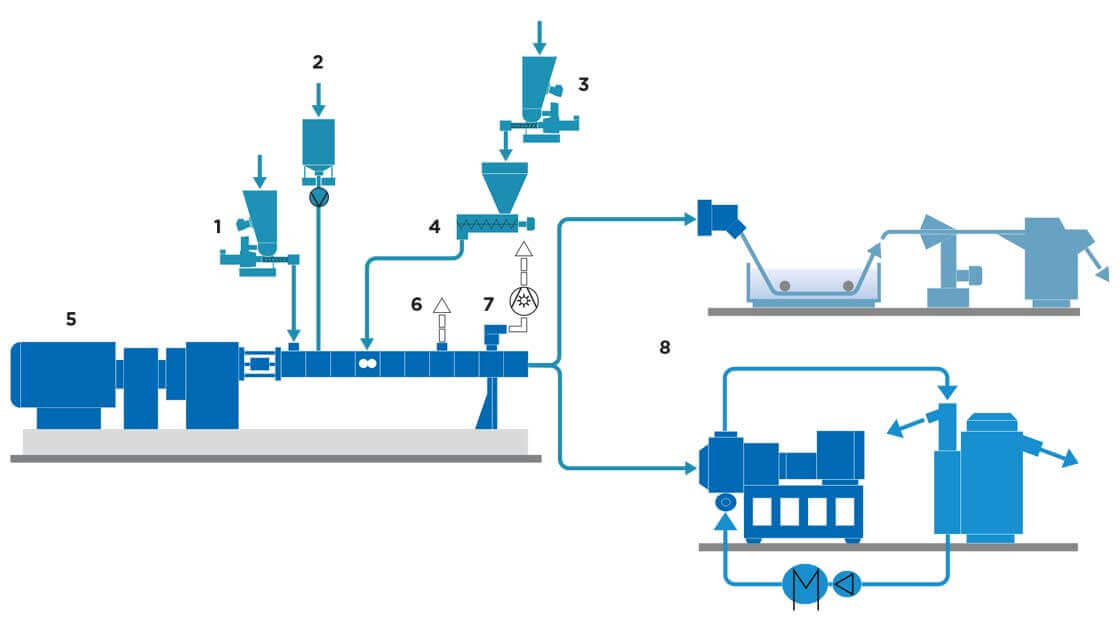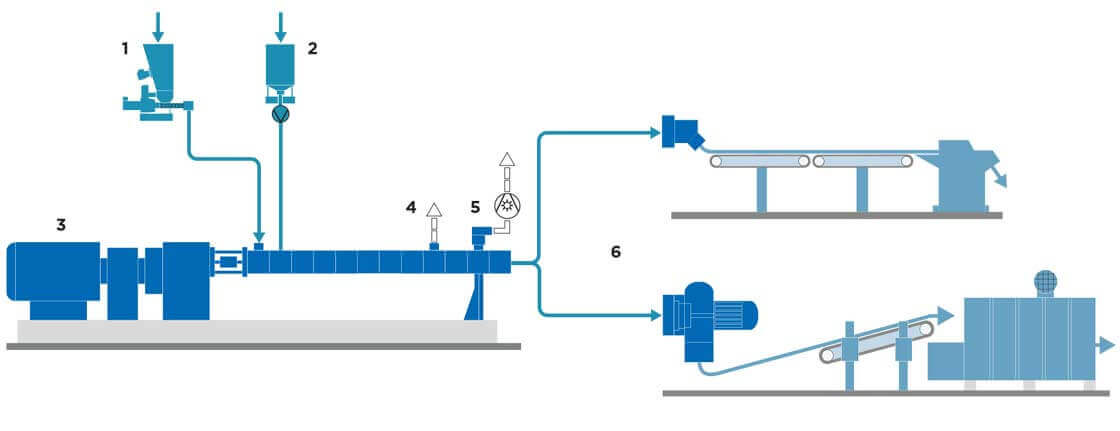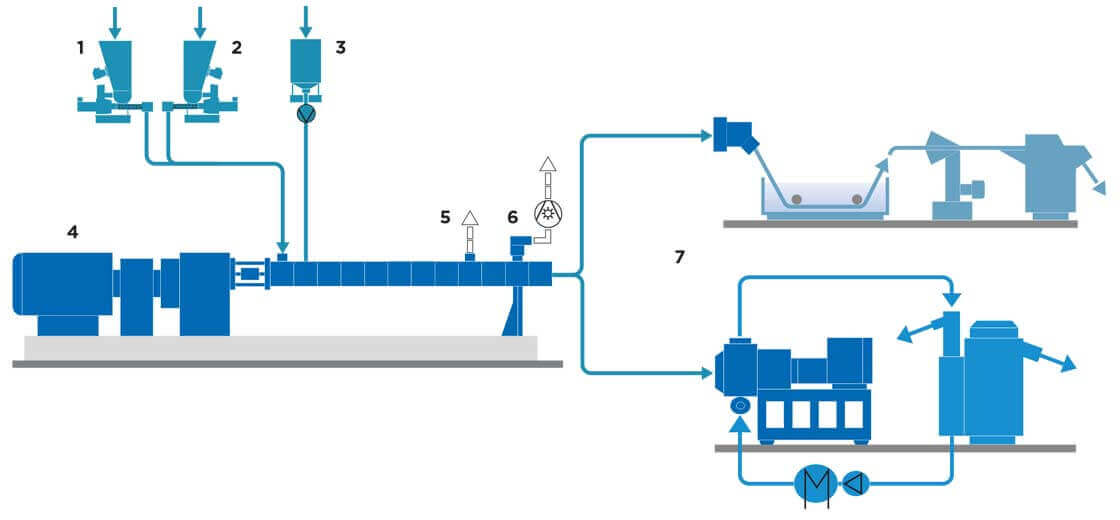Sustainable Compounding with Coperion Technology
Bioplastics are biodegradable, bio-based, or both. They represent a market-ready solution and are already in use in a variety of applications.
Bioplastics manufacturing places very high demands upon the compounding process due to the number of possible base polymers and the vast differences in recipe mixtures. Every process step in the compounding systems must be precisely aligned with the mechanical properties required in the end product.
Coperion and Coperion K-Tron have decades of experience in realizing systems for bioplastics manufacturing. We possess unique process expertise and comprehensive system know-how for the entire process chain – from raw material conveying to premixing, feeding, extrusion, pelletizing and drying, as well as the gentle conveying of biocompounds. As a result, you profit from our in-depth knowledge, acquired in the fields of plastics compounding and cooking extrusion.


